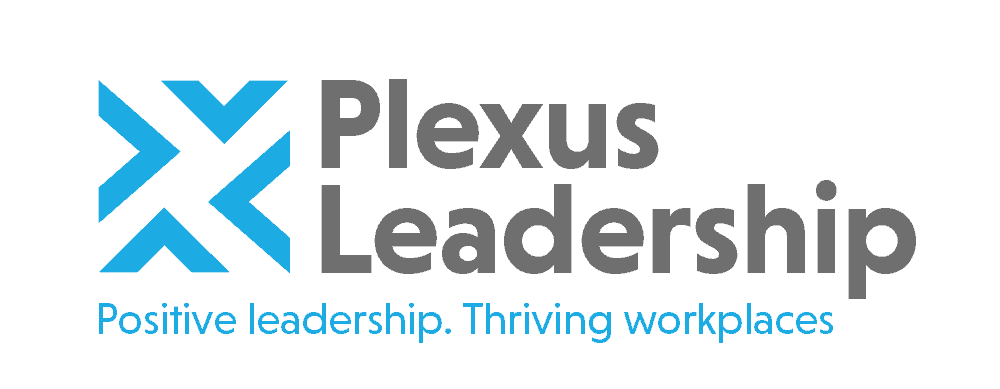The case for purpose-driven organizations has never been stronger as a result of sweeping, disruptive forces impacting organizations creating unprecedented volatility, uncertainty and complexity. This is compounded by the twin crises of trust in unfettered capitalism and leadership facing companies around the world. It is not just millennials demanding a fundamental transformation of the market role and behaviour of their employers. There are growing concerns among employees who are putting pressure on their organizations to become a force for good, reducing their impact on the planet in the pursuit of profit. Linked with this are growing expectations among employees to see greater levels of fairness, ethics and transparency from their employers.
Simultaneously, passion is increasingly highlighted as a key performance and cultural accelerator to move companies from ‘good to great’. Although defined it different ways, passion is essentially “fire in the belly” or positive energy to achieve and outperform against one’s goals. In today’s rapidly changing and volatile business environment where there is huge pressure to do more with less, employers require passionate people who can drive outstanding performance and sustained success.
Below are 5 ways leaders and organizations can build vibrant, purpose-driven cultures fuelled by passionate and talented people.
Clarify the company’s purpose
Organizations with a clear purpose that delivers real value to customers and tackles society’s unmet needs will find it easier to attract, hire and retain talented people wanting to be part of contributing to something important and meaningful. A compelling purpose should describe the company’s reason for being, the value the business will deliver to customers and how it will conduct itself. A purpose is not a financial or numerical goal. It is a combination of the company’s vision, mission, and values.
One of the best operationalized statements of purpose I’ve ever experienced was at Danish-headquartered Novo Nordisk (www.novonordisk.com), a world leader in diabetes care. The company’s stated purpose is to create value for patients by improving their lives and the way diabetes is treated and viewed around the world. All employees, regardless of their role, are expected to understand the day-to-day challenges for diabetic patients as well as the company’s values, operating principles and core processes. This purpose is lived by employees at Novo Nordisk every day, regardless of where they work across the globe. It is not something that exists only in glossy brochures or among top executives.
Hire people passionate about your purpose
There is an old cliché “hire for attitude as well as skill” that appears to have stuck with HR and business professionals, yet few organizations know how to deploy this effectively in the way they hire talent. Organizations need to ensure interviews (and other assessment methods) look beyond the usual list of skills, experience and qualifications to the person’s cultural fit, learning agility and unique strengths and talents. This is increasingly important in a work context where job roles can change at lightning speed, transforming the skills and experienced required in months, let alone years.
Based on the latest research, we know that when people are in jobs aligned to their aspirations and talents, they are far more likely to go “above and beyond” in the pursuit of exceptional performance. Passion is also highly contagious as anyone who manages enthusiastic people knows. If people enjoy their jobs and believe in the company’s purpose, others in the team will soon ‘catch the bug’ and a virtuous cycle of success and confidence is created, becoming a powerful catalyst for even more success.
As Warren Buffet, one of the most successful businessmen in the US and founder and CEO of Berkshire Hathaway, stated: “Without passion, you don’t have energy. Without energy, you have nothing.” Passion will help your people go way beyond expectations to see your company’s vision fulfilled. It will be the fuel for your journey and create unstoppable energy throughout the business.
Build a culture of candour and openness
The quickest way to kill off talent and passion is to stifle ideas, creativity and candid exchange among your people and with top management.
A flat structure helps, as there is a shorter communication distance between top managers and employees. However, the key is not just to reduce the number of management layers. It is to build an open and informal culture where autonomy, new thinking and open communication flourish. Every employee has a voice and needs to feel there is a safe environment to disagree openly co-workers and management, without fear of bullying, intimidation or other negative repercussions.
It takes time to build trust and create the psychologically safety necessary for a culture of candour and open communication to emerge. This can be accelerated by ensuring a zero-tolerance policy to autocratic, bullying or coercive management. It is vital to ensure C-suite executives are not exempt from this policy, as they are the ones who will need to set the example and show employees that the policy is operationalised, as opposed to merely espoused as a ‘box ticking’ exercise.
Open dialogue can also be promoted by encouraging cross-functional project working and frequent conversations across company boundaries using collaborative tools and approaches. The most popular ones deployed include team communication apps (e.g., Slack), social meeting hubs, collaborative workspaces, online chat forums, innovation zones, and question and answer forums with top executives and directors. Such tools not only encourage open conversations, idea sharing and problem-solving, but also save time that is normally spent sharing emails.
Train people leaders to be great coaches
Talented people want engaging opportunities to use their talents and strengths to contribute to the purpose and goals of the organization. They want to feel valued and encouraged by their manager not just for the work they are doing currently, but for their untapped potential and talents. Leaders and managers must therefore be excellent talent spotters, accelerators and coaches, not just drivers of current performance. Only those that genuinely care about the development of people should be promoted into managerial positions. Ongoing training and coaching of managers should also be provided to ensure that they understand the latest techniques, tools and skills to help them optimise their people’s potential, motivation and learning.
Recognise and reward effort
Elite sport has provided a lot of insight to business about the way to build a high-performance culture. The theory of marginal gains is one of the most powerful concepts to be adopted by businesses in recent times. According to this, every targeted effort (no matter how small or seemingly insignificant) to improve performance can have a multiplicative effect and help achieve a culture of excellence.
This is the reason why companies should build a culture where successes, new ways of doing things and ideas for improvement, even the small ones, are appreciated and celebrated regularly. In our experience, most companies only celebrate big achievements and don’t take time to acknowledge smaller, albeit significant, contributions and improvements frequently. This is a lost opportunity as overlooking contributions and improvements by employees ultimately undermines their passion, morale and performance. There are numerous inexpensive, non-financial ways organizations can recognise contributions including providing simple “thank you’s” time off, vouchers, lunches with the manager, recognition in team meetings, etc.
By following these 5 principles, you can build a purpose-driven and passionate organisation that is a force for good in the world and a magnet for top-calibre talent.
Want to find out how we can help your organisation? Contact us now for an obligation free chat.
Other Posts

About the Author
James Brook
Founder and MD | Leadership Consultant | Organizational Psychologist
James is a leadership consultant, organizational psychologist and executive coach. He has over 25 years’ experience working with leaders, teams and organizations globally to optimize their performance, talent and future success. He specializes in positive leadership, thriving workplaces, collaboration and influencing, organizational change and transformation, accelerating innovation and coaching executives and leaders in innovative sectors including Tech, Digital, E-commerce and Life Sciences.
Before setting up Plexus Leadership, James held leadership roles in HR and Talent Management in the UK and abroad with companies such as NatWest, Yahoo! and Novo Nordisk Pharmaceuticals. After this, he founded and led several talent and leadership consulting and assessment businesses, including Strengthscope®, an online strengths assessment and development business serving a wide range of UK and global clients. James grew this venture into a global market leader before selling the business in 2018.
James has supported, advised and coached leaders and teams globally across diverse industries and geographies. Clients he has worked with include Allen & Overy, Commvault, Equinor, Facebook, GSK, Hilton, John Lewis, Novartis Pharmaceuticals, NHS, Oracle, Sainsbury’s, Swiss Re, Tesco, Takeda Pharmaceuticals, WSP and Yahoo!.
James has a Master’s in Organizational Psychology, an MBA, an Advanced Diploma in Executive Coaching and a Harvard Business qualification in Sustainable Business Strategy. He is a member of the Institute of Directors, the Association of Business Psychologists and a Fellow of the Chartered Institute of Personnel and Development (FCIPD). He is currently undertaking a PhD in Organizational Psychology examining the start-up experiences of Tech and Digital entrepreneurs.
James is a regular contributor and speaker on leadership, coaching, innovative talent management and the future of work. His most recent book, Optimize Your Strengths, explores how leaders can create thriving workplaces by inspiring and supporting people to optimize their potential and teamwork to deliver breakthrough results.





